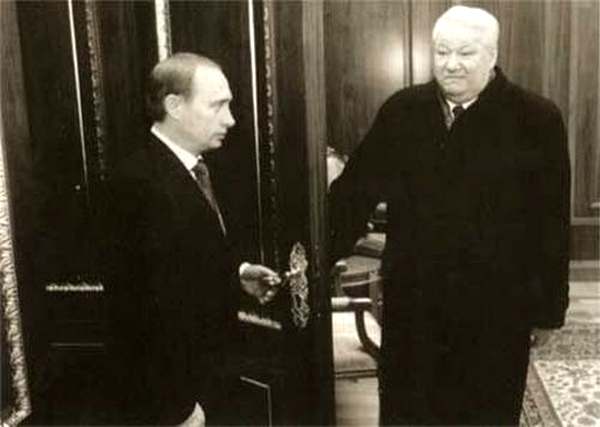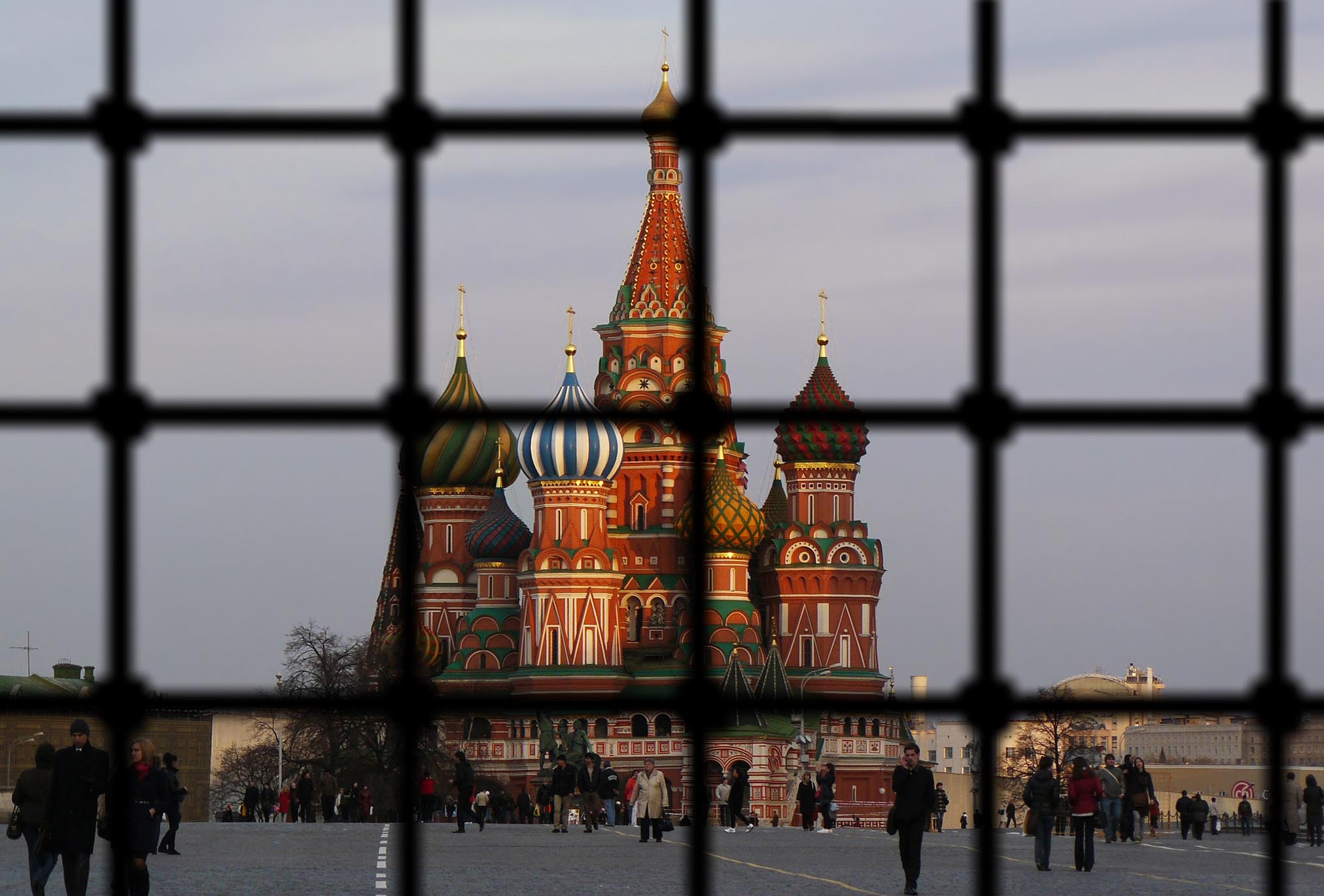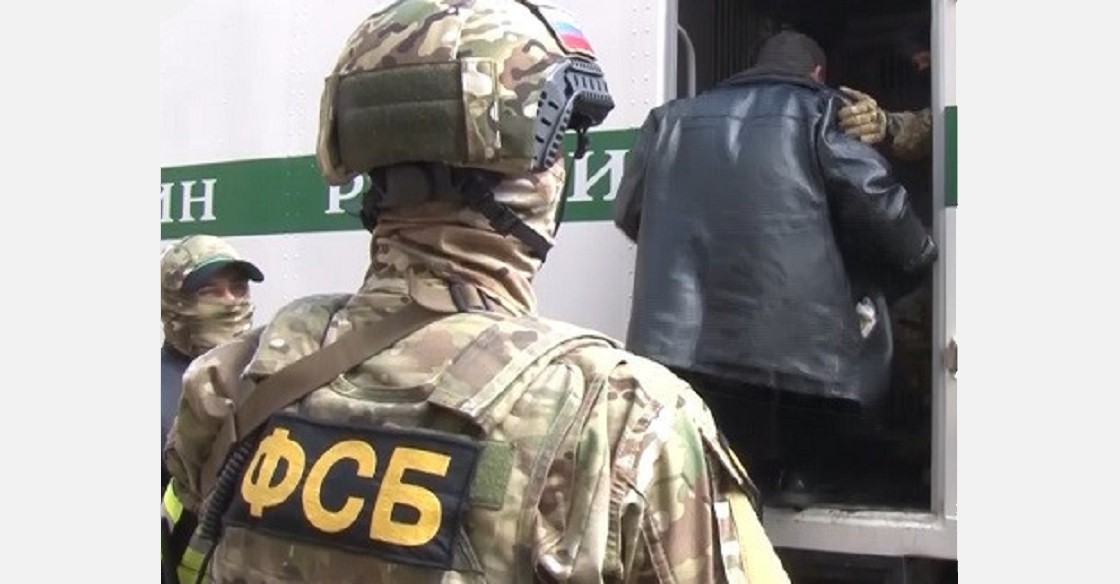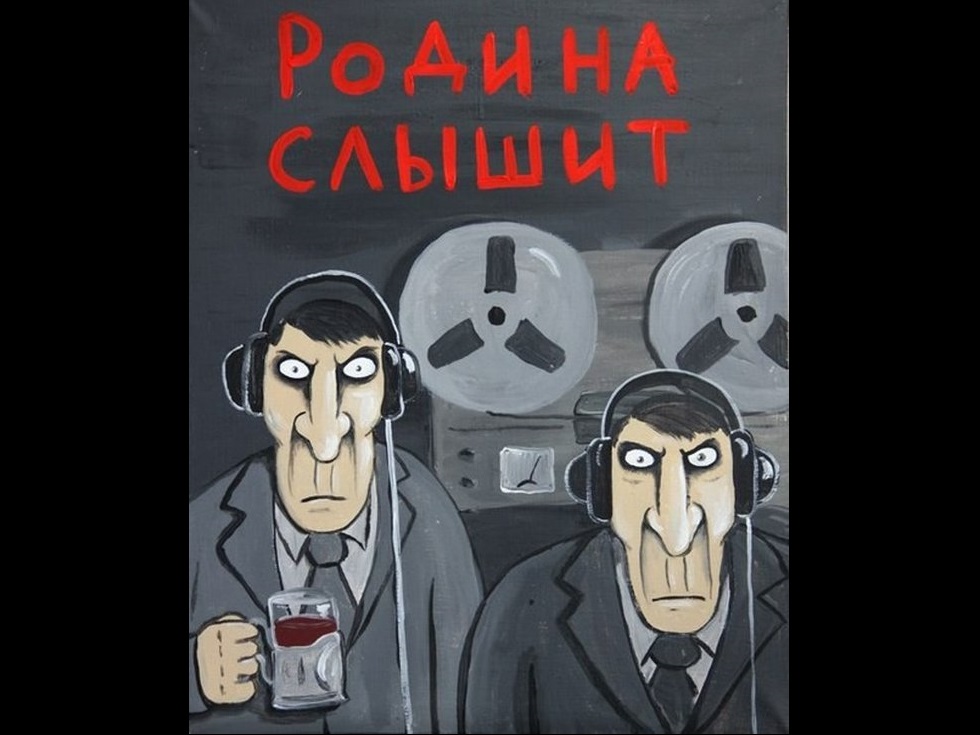In a series of publications, Euromaidan Press publishes translations and summaries from Dossier Center reports and investigations. The reports describe the rebirth of the FSB from a state organization called to ensure the security of society to a semi-criminal structure that has appropriated the functions of a “second government” and is invading all spheres of public and state life.
Part 2 tells about how, under the leadership of Vladimir Putin, the FSB formed a stable coalition with city officials and local criminal circles in St. Petersburg, took control of business, and expanded this model to the rest of Russia, sprouted FSB elites, and gradually grew tentacles into all other Russian structures. The threatening power of Russia’s FSB was further enhanced by Vladimir Putin’s rise to power…
Read Part 1:
The formation of a fundamentally new Russian political force – the FSB – took place throughout the entire 1990s and lasted until 2003. In this process of formation, three stages can be distinguished:
- commercialization;
- criminalization;
- emancipation.
Commercialization and criminalization became an inevitable consequence of the de-ideologization of the service during the political and economic crisis of the late 80s and early 90s. Emancipation took place in a later period: after rising to power in 1999, Putin relied on FSB personnel foremost, making FSB not only a powerful security service but turning it into the main branch of power.
After the collapse of the Soviet Union, Russians faced a deficit, non-payment of wages, and a lack of clear prospects. Under these conditions, the number of organized criminal groups increased sharply and authorities lacked the resources to resist. Representatives of organized crime engaged in theft, arms and drug trafficking. Among other things they “sheltered” businessmen for a certain percentage of shares.
The skills of the KGB and then FSB officers, who knew the basics of conspiracy and methods of security forces, turned out to be very useful to organized crime representatives who willingly hired former and current security officers in the 1990s. Under the bandits’ wing, FSB officers could secure decent wages and resolve personal issues. Often, cooperation with criminals could be justified and formally legalized by the alleged need for secret infiltration.
Testing bandit authoritarianism in St. Petersburg
Although the merger of gangsters with the security forces took place almost everywhere, the events most significant for the country developed in St. Petersburg, where part of the employees of the regional department of the FSB, the city administration, and the top of the local criminal circle formed a stable coalition.
The result was the emergence of unprecedented (for Russia) systemic and structured corruption with international ties. The closest examples of these kinds of “communities” may be found in the history of the Italian mafia or American criminal syndicates at the time of the Great Depression.
In 1994-1996, Putin worked as the First Deputy Head of the St. Petersburg city government, being at the same time a reserve colonel of the FSB.
Marco Giaconi, the head of the Italian Institute of International Politics and Economics, thus describes one of the methods of establishing control over business in Russia:
“As Russian and foreign businessmen operating in the post-Soviet space have repeatedly confirmed, <…> attempts by the KGB to establish control over the economic activities of individual enterprises are conducted following the same model. At the first stage, racketeers rob or try to appropriate rights that do not belong to them. Following this, representatives of the FSB come to the enterprise and offer the firm to help overcome the difficulties. From that moment on, the company is forever deprived of its independence. Enterprises that find themselves in the FSB networks can experience difficulties in obtaining loans or even experience financial turmoil at first. But subsequently they receive licenses to trade in such specific areas as aluminum, zinc, unique food, cellulose, wood. The firm receives a powerful impetus for development. At this stage, former FSB officers are infiltrated into it. They receive a new portion of money from this company.”
Although this model was common for all post-Soviet areas (albeit at a different scale) in the 1990s, St. Petersburg was so known for cooperation between criminal groups and the FSB that the image of Bandit Petersburg penetrated deeply in the culture and became iconic. In the early 2000s, the novel and film series were made about Bandit Petersburg.

Putin was closely affiliated with the mayor of St. Petersburg Anatoliy Sobchak. Both Sobchak and Putin were accused of large-scale corruption during privatization and license issuance. At the same time, as the statements of police from the 1990s confirm, Putin’s high political position blocked an independent investigation of his crimes.
After Sobchak lost elections in St. Petersburg in 1996, Putin moved to Moscow, where in the timeframe of three years he made a booming career, rising from the deputy head of the Presidential Administration to the President of Russia. 1996-2003 are particularly interesting years that show how Putin and his FSB colleagues unfurled their control from St. Petersburg to the whole of Russia.
FSB reform under Putin (1998-1999) and the first villas for generals
In the summer of 1998, amid an escalating social and political crisis, then-president Boris Yeltsin decided to replace the FSB leadership. Putin was appointed the new director of the FSB.
This proved to be a fatal decision for contemporary Russia.
After Putin became head of the FSB, he carried out a harsh reform of the secret service system, dismissing the old employees en masse and replacing them by colleagues from St. Petersburg. These changes predetermined the system’s vector of evolution for many years to come.
In his address in the new position, Putin noted that he was returning to the FSB “as if to his own home” and was determined to do a lot of constructive work. Many FSB personnel did not meet the arrival of the new director with enthusiasm. Eastern Germany, where Putin served in the 1980s, was not considered the most prestigious place of work – the best officers of KGB worked in capitalist countries.
Shortly after taking office, Putin fired about 2000 officers, including all employees of economic departments and high-ranking generals from the FSB board. Following this, the new director appointed his people from St. Petersburg to key positions, including the FSB board. Nikolai Patrushev became Putin’s first deputy and until today remains his right hand.
On 9 August 1999, Putin was appointed the head of the Russian government. This day, President Yeltsin said Putin was to become his successor. In 2000, Putin was elected as Russian president, attaining new possibilities for centralization and concentration of power, and sweeping away unfavorable people.

According to the data of the Russian register for the Moscow region, between 1999 and 2004, 126 country houses, winter huts, and vegetable storage facilities located near Moscow passed into the ownership of generals from “Putin’s list.”
Centralization and emancipation of new FSB elites under Putin (1999-2004)
Finding themselves at the center of Russia’s political system, the union of FSB personnel, officials, and bandits was empowered to influence all spheres of life in the country. Democratic civil and state institutions, still in their infancy, were unable to respond to the threat. Additionally, the sharp rise in oil prices allowed the new coalition to take under control huge cash flows and pursue a populist policy that secured broad public support. As a result, corrupt practices reached a systemic level.

In 1999, the FSB under Putin’s leadership took part in removing from office Prosecutor General Yuri Skuratov, who had been investigating potential corruption of high state officials, including Yeltsin’s family. That was the first loud case of FSB pressure on officials that subsequently became the norm. Since 1999, active work started on collecting compromising material on local governors in order to form future criminal cases. Some operational actions were carried out, including using provocations with bribes.
2000, during Putin’s first presidency, saw the beginning of a gradual centralization of power. In 2000, by Putin’s decree, federal districts were created. Representatives of the president were appointed to each district. According to experts interviewed by the Dossier Center, the presidential envoys, relying on data received from the FSB and the Ministry of Internal Affairs, began working with the heads of regions to convince them to integrate into the new system and not oppose it. However, in a number of regions, this policy did not succeed. Consequentially, in 2004, elections of local governors in Russia were replaced by a direct appointment of regional leaders by the president.
“In 1999 the local governors were a serious political force, people with influence and control over economic flows in the regions and local law enforcement agencies. But already in 2002, after the introduction of the institution of presidential plenipotentiaries, after many ‘dinosaurs’ of the Yeltsin era understood they are being watched closely in all directions, regional leaders became more open to compromises. The ground for abolishing elections was prepared already in 2004. None of the governors and heads of the republics dared to openly express dissatisfaction with Putin’s decision. They already understood that they were directly dependent, and if they contravened, they would be not just dismissed, but also imprisoned,” explained an expert with the code name s30, who worked in the Department of Internal Policy of the Presidential Administration in 1999-2010.
Fourth week of protests in Russia’s Far East: everything you need to know
Additionally, the Ministry of Internal Affairs was reformed in 2001. The regional departments of internal affairs began to report directly to Moscow, which enabled removing some barriers to operational work.

A new wave of the FSB’s expansion of power took place in 2003-2004, when Putin strengthened his position as president. On 11 March 2003, by his decree, he transferred the functions of the Federal Border Service (FPS) and part of the functions of the Federal Agency for Government Communications and Information (FAPSI) to the FSB. The material and technical base of the Federal Border Service was also transferred to the FSB.
Consequently, among other things, the entire border aviation was put under the control of the FSB. It was transferred to the FSB aviation department and became available for all special service units. According to the unofficial register of Russian aircraft, the FSB fleet includes more than 200 aircraft.
In 2004, a decree by President Putin on reforming the intelligence service was published, according to which much broader powers were granted to the FSB leadership. Particularly, the director of the FSB received the right to choose the members of the FSB board, as well as their number. Even in the Soviet KGB, board members were approved by the Council of Ministers and the Central Committee of the communist party. By the same decree in 2004, the number of deputy directors was reduced from twelve to four; independent divisions were also abolished. The decree aimed to give the FSB the status of a state in a state – basically, a self-governing structure.
In 2004-2005, the 6th Internal Security Directorate of the FSB was created, which today is one of the most influential structures of the FSB. According to a former FSB officer, the main reason for the creation of the 6th service was a desire to increase FSB operational capabilities that previously belonged to police:
“One of the goals of the new service was the final liquidation of the police Department for Combating Organized Crime, which in the mid-1990s intensively detained FSB officers during raids, as well as lowering the position of the police as a whole. The new service was conceived as a ‘superstructure’ over the rest, as an operational body to which the most powerful candidates were recruited.“
In fact, in all law enforcement agencies, at least one of the top management posts were held by an FSB officer.
As such structural changes took place within the service, it began to claim the return of previously lost positions.
The self-perception of FSB personnel as an “elite” that faltered in the early 1990s paradoxically began to strengthen after Putin came to power. The characterization of the FSB as a “new nobility,” voiced by Nikolai Patrushev in the 2000s, well illustrates the ideological evolution of the service personnel who started feeling their impunity:
“I do not want to say lofty words, but our best employees, the honor and pride of the FSB, do not work for money. When I have to present our personnel with government awards, I look closely at their faces. High-minded intellectuals and analysts, broad-shouldered, weathered special forces fighters, silent explosives technicians, strict investigators, reticent counterintelligence officers. They look different, but there is one important quality that unites them – they are people of service, modern ‘neo-nobles.”
To be continued…





